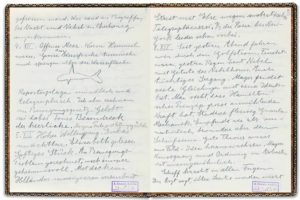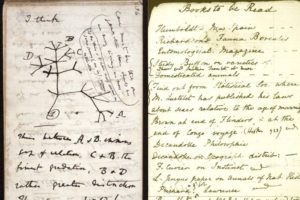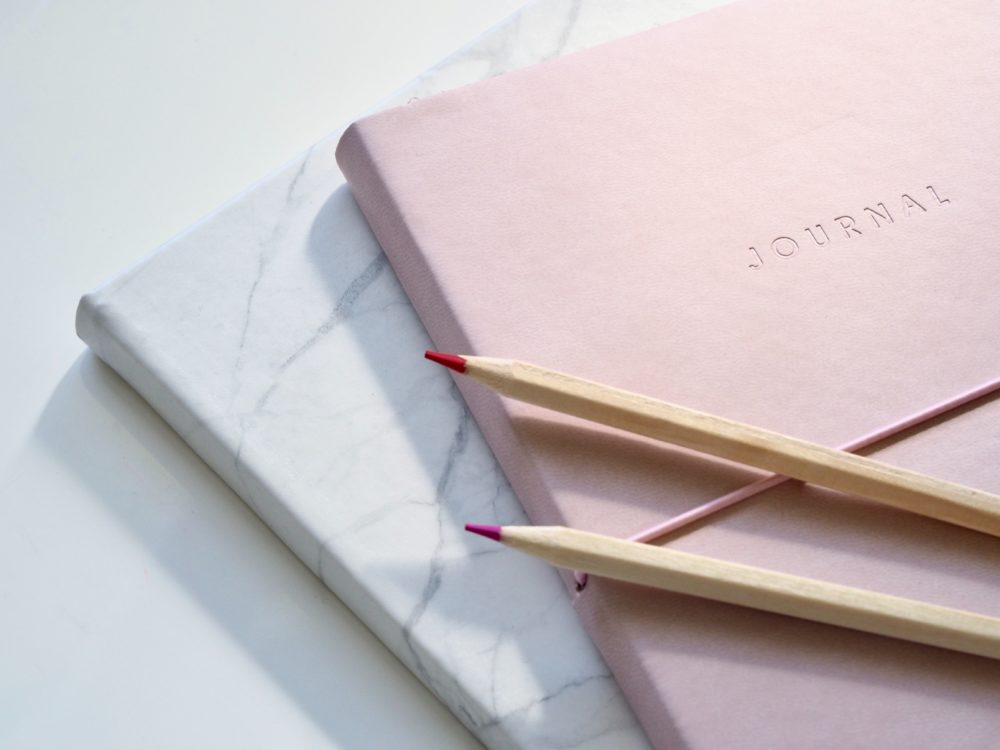When asked about the greatest people in history, who pops up into your head? You might think of Isaac Newton, Abraham Lincoln, Andy Warhol, Leonardo Da Vinci, Marcus Aurelius, Charles Darwin, Winston Churchill, Benjamin Franklin, Ernest Hemingway, George Bernard Shaw and Maya Angelou. Other than being the most influential people in history, they all had one other thing in common, ‘journaling’.
Journaling generally involves the practice of keeping a journal or a diary that explores thoughts and feelings surrounding the events of your life. For many, it is a creative necessity, for others, a place for exploration, and for some, an art form in and of itself. I like to think of journaling as the three of those combined.
From writers and thinkers to artists and world leaders, many influential personalities, throughout history, have kept journals, meticulously maintaining detailed accounts of their day-to-day lives, thoughts and feelings.

Albert Einstein’s travel diary to the United States recorded his experiences abroad from November 1930 to June . Via Thrive Global

Over 7,000 pages of Leonardo da Vinci’s drawings, ideas, and natural inspirations have been preserved. Via The British Library

Charles Darwin kept numerous notebooks to record his discoveries and thoughts on everything from his first sketch of an evolutionary tree (left) to important books to read (right). Via Thrive Global
Here are three interesting reasons to make journaling a new habit of yours:
A Tool For Personal Growth
Journaling helps you track your personal growth. When you write down your emotions and experiences daily, you can easily look back to analyze your goals and observe if there are any patterns of behavior to take notes of, negative characteristics to be avoided, things that you could’ve done differently, etc. Once you’ve figured these things out, you can recognize what you’re doing right and what you are doing wrong and work on areas that need improvement.
Helps You Clear Your Mind
When you write about your thoughts and feelings, you are decluttering your mind by organizing those thoughts and emotions into coherent chunks of information that are easier for the brain to process. This, in turn, helps you free up some mental space and think more clearly. Getting rid of mental junk also improves focus and boosts creativity.
Improves memory and problem-solving skills
As mentioned before, journaling boosts creativity and eliminates mental clutter. By removing all the mental blocks, you can begin to brainstorm effectively. And by engaging the creative side of your brain, you might be able to come up with interesting solutions to complex problems that analytical thinking couldn’t offer.

Via Unsplash
Now, as for starting the journaling process itself, it’s important to put the following in mind:
- Forget about spelling and grammar.
- Write like no one else is going to read it, so be as honest and authentic as you can.
- Find 30 minutes in the morning or at night of uninterrupted time to do your journaling, ideally the same time every day.
- What you write, draw or sketch is completely up to you.



























